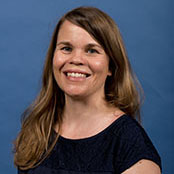Project Abstract
Groundwater is a key drinking water source in Alaska. However, groundwater in Alaska is commonly contaminated with naturally occurring metals including iron, manganese, and arsenic. When these contaminants are present in drinking water, they pose a serious health threat. Water treatment systems in many rural communities are not always able to remove these contaminants. This situation endangers the well-being of the community, diminishes trust in the treatment system, and reduces use of the treated water. The goal of this project is to address challenges involved with treatment, delivery, and use of drinking water in rural communities, with a special focus on indigenous residents. Benefits to society result from identification of ways to improve water services for communities of indigenous Alaskans that use groundwater contaminated with iron, manganese, and arsenic.
Contamination of groundwater with naturally occurring iron, manganese, and arsenic poses a significant threat to Alaskans who use it as a source of drinking water. The goal of this project is to address this threat by: i) creating a holistic conceptual model of the factors, interactions, and feedbacks that shape access to safe, reliable, and socially acceptable drinking water in rural Alaska, ii) identifying gaps in our understanding or capacity to solve the problem, and iii) building a team of experts and community members poised to tackle these gaps. To accomplish this goal, project leaders are leveraging existing knowledge about treatment, delivery, and use of contaminated groundwater in indigenous Alaskan communities from a diverse set of experts and stakeholders, including Tribal members. The project is led by three female scientists with backgrounds in natural science, engineering, and anthropology located at a traditional research university (University of Washington) and a Tribal non-profit (Alaska Native Tribal Health Consortium). Project results hold the potential to fundamentally advance understanding of the complex system of natural and built environments, as well as social factors that affect safe drinking water access in rural Alaskan communities, and facilitate the generation of novel hypotheses about how this complex system will respond to Arctic climate change.
Logistics Summary
This project seeks to address groundwater sources of drinking water for rural communities from a perspective of reliability and contaminant related health concerns. The project also focuses on the impact of climate change on these issues. In each year of the project researchers will hold a one-day workshop in Anchorage, Alaska as part of the annual Alaska Tribal Conference on Environmental Management. During the workshop researchers will meet with experts and people from impacted communities (2 TBD communities in the YK Delta), interview people from said communities, and use Delphi analytics to identify major research questions for future work. Note: in 2020 the conference will be conducted virtually due to COVID 19. In year 1 and 2 a field team of 4 will travel to Bethel, AK and 2 communities near Bethel to conduct community-based interviews.
Season Field Site
2020 Alaska - Anchorage
2021 Alaska - Anchorage
2021 Alaska - Bethel
2022 Alaska - Anchorage
2022 Alaska - Bethel
Project Location
Dates
-Location
Anchorage, AK; Bethel, AKMembers
Principal Investigator

Co-Principal Investigator

Co-Principal Investigator

